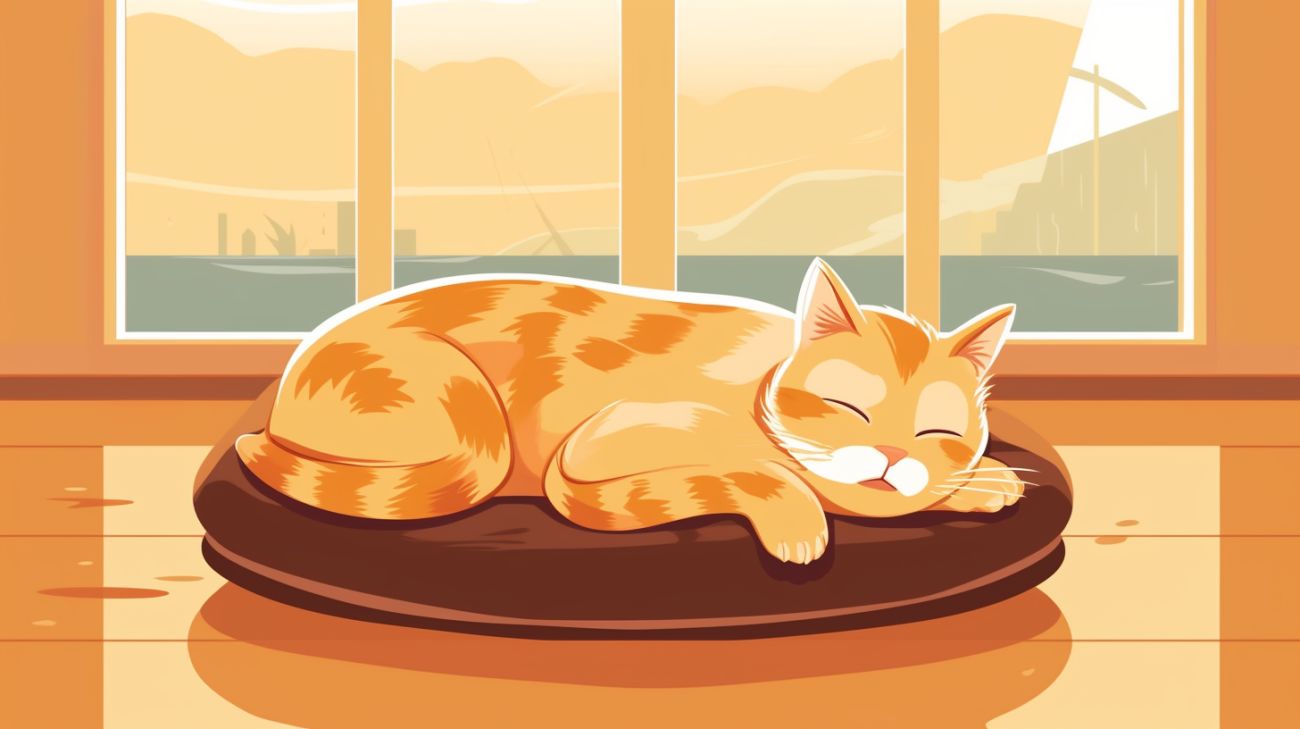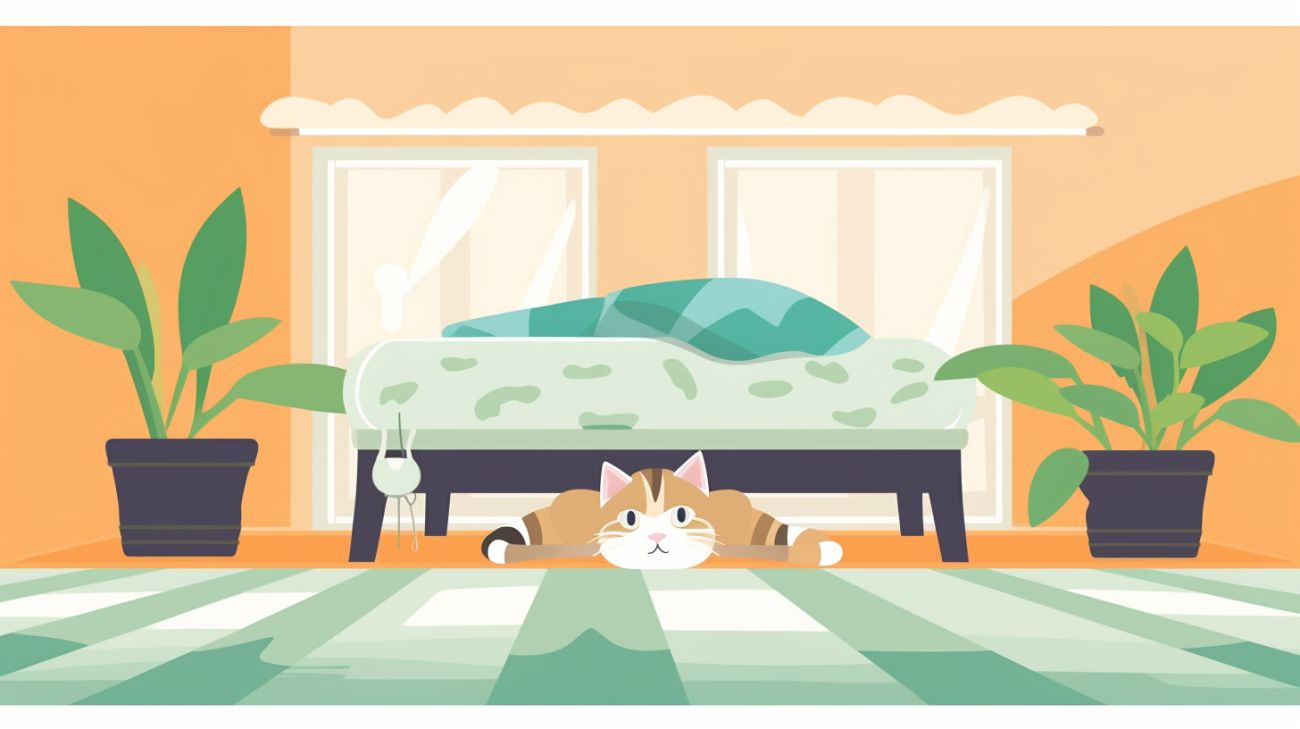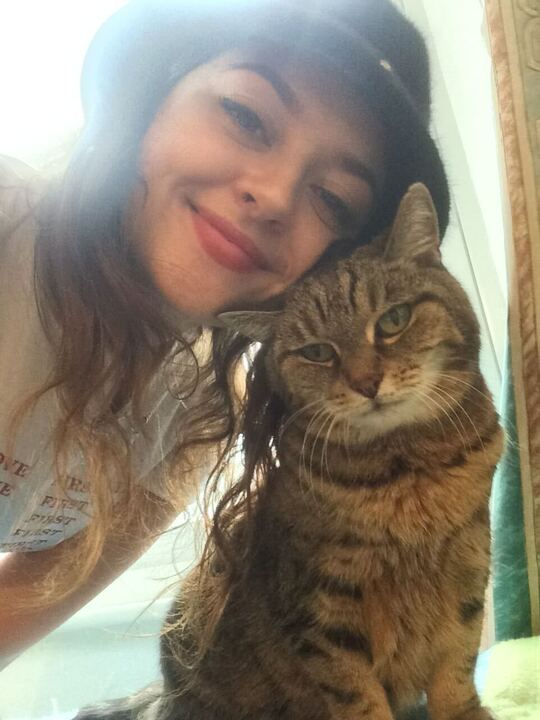Key takeaways
Cats can be fussy eaters, or they eat anything in sight. It depends on your kitty's personality. However, when they stop eating completely, we can start to panic.
To get them the care they need and know what to do next, you should try to identify what is causing the loss of appetite.
In this guide, we're exploring the top 5 reasons why your cat won't eat before sharing our expert tips on how to encourage your cat to eat again.
Quick Navigation
5 Reasons why your cat might stop eating
1. Dental issues
Mash up wet cat food instead of crunchy dry food and see if they're more interested in eating
Look at their teeth and see how clean or dirty they are
If they eat, observe whether they struggle to chew or drop bits of food as they eat

2. Pain
Excessive licking: In an attempt to soothe their pain, cats will repeatedly lick or bite the area that's causing them discomfort. This is an obvious sign of distress and one you should take note of.
Sleeping more or less: Lethargy, moving slowly, and sleeping more can all indicate a cat suffering from pain. However, restlessness and inability to sleep can also indicate discomfort.
Vocalizing more: Meowing, yowling, hissing, and even purring can show your cat is in pain. Purring is how cats self-soothe and heal, so even though you may associate it with happiness and calmness, it can also show that your cat is suffering.
Limping: This is a more obvious signal that something isn't right. Alongside limping, your cat may not be able to run as quickly and may struggle to jump up or clean themselves in a certain way.

3. Stress
Hiding
Running away
Isolating themselves
Not eating or drinking
New visitors: Cats are very territorial animals and having a safe space they can relax and feel confident in is extremely important. When new people come into their environment, they may struggle to feel safe, leading to high levels of stress.
New pets: Similarly to visitors, other animals in their space threaten their territory and safety. If you are introducing new pets into their environment, it's essential you do it gradually with boundaries to respect your cat's home.
Loud noises: A stressful environment is often a loud one. That can be loud music, construction work, or lots of people. This can frighten your cat and lead to ongoing stress when they can't relax.
Neglect: When a cat is neglected, their fight-or-flight instinct will be triggered, leading to stress. This could include lack of attention, being left alone for long periods of time, not being fed enough, not having access to clean water.

4. Health issues
Kidney disease
Respiratory diseases
Gastrointestinal disease
Pancreatitis
Changes in your cat's diet and eating habits can be the first sign of a health problem and one you should take seriously.

5. Dirty food bowl

How to get your cat to start eating
Try a mix of wet food and dry food: Changing up your cat's diet can be effective if they've stopped eating. Trying new food, like different brands, flavors, and textures may encourage your cat to take a bite. My fussy little furry friend needed a change in food every few weeks to keep her interested!
Try little treats and snacks: Rather than expecting your kitty to eat a full bowl of cat food, start small. Even tiny mouthfuls and snacks will help energize your cat and get their nutrients back up. Cat treats, like Dreamies or liquid treats out of a tube, can help gradually reintroduce eating.
Try human food: If you have a particularly spoilt cat, they may be holding out for some tasty human food. And this is no bad thing! Roast chicken and boiled rice helped nurse my kitty back to health after a long period of illness, so see what may take their fancy.
Try a liquid diet: Blended up food and liquid treats can help get your cat the vitamins and nutrients they need without them having to chew. This can be particularly effective if your furry friend is suffering with painful teeth.

Caring for your cat when they're sick

FAQs
What causes loss of appetite in cats?
Many things can cause a loss of appetite in cats, like dental problems, pain, stress, and health problems.
When should I worry about my cat not eating?
If your cat hasn't eaten for over 24 hours, you should get them checked up at the vet. Longer than 24 hours without food can start to harm your kitty and cause damage.
How can I get my cat's appetite back?
To encourage your cat's appetite to return, try purchasing different food and treats. You can also try switching to only wet food or only dry food. Sometimes, some human food as a treat, like roast chicken, can also be enough to get them to eat.
Do cats go through phases of not eating?
Cats, like humans, will often go through phases where their appetite will diminish or increase. This is normal as they grow and the seasons change. However, if they aren't eating at all, you should take them to the vet for a check-up.
Do cats lose their appetite as they get older?
As cats age, many will start eating less and less. They may lose interest in some of their favorite food and treats, but if they stop eating completely, ask a vet for advice.
What happens if a cat doesn't eat for 3 days?
If a cat doesn't eat for three days, they can become very weak, lose a lot of weight, and develop health issues. It's essential you take them to the vet so they can get the care they need.



